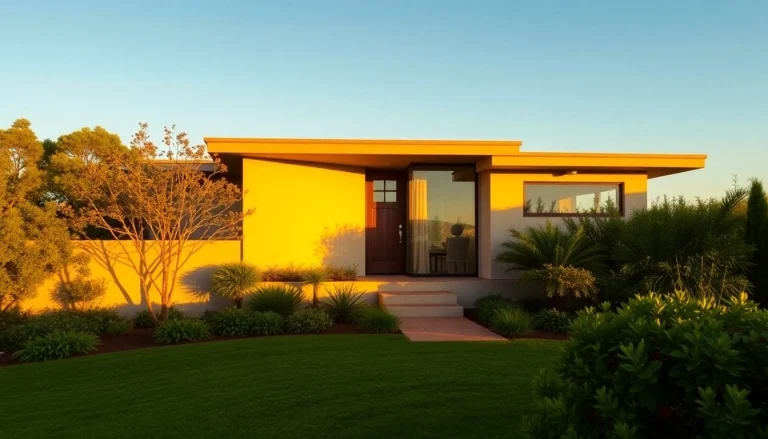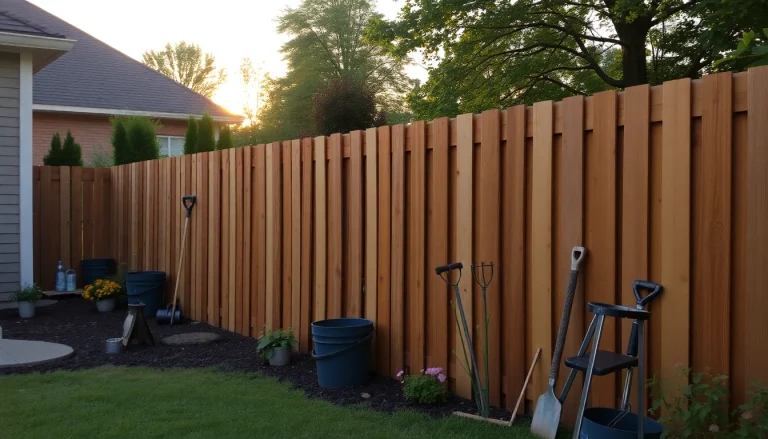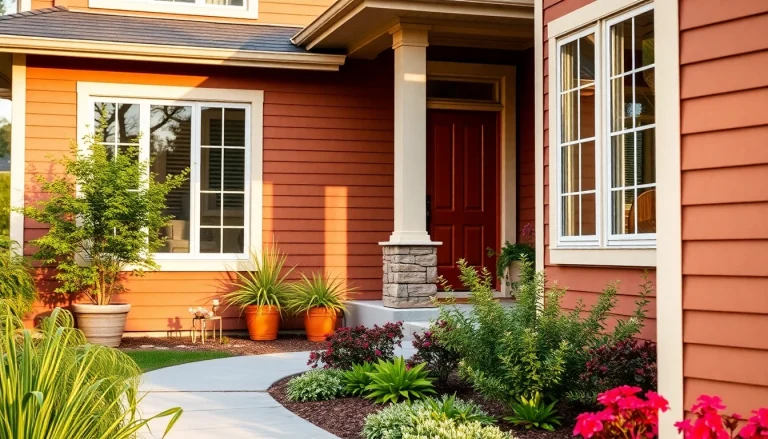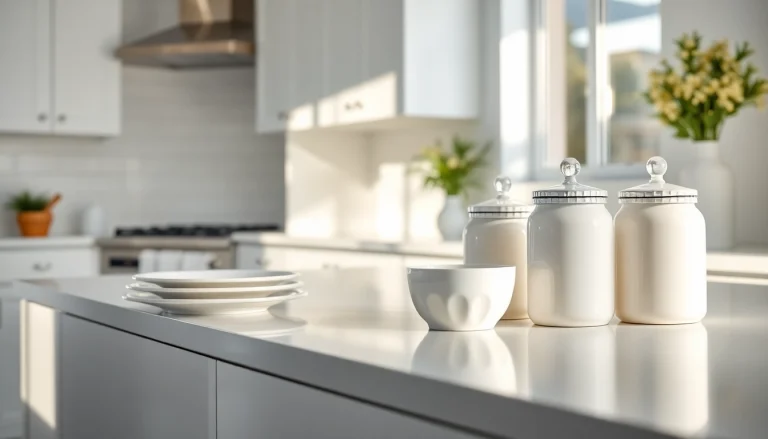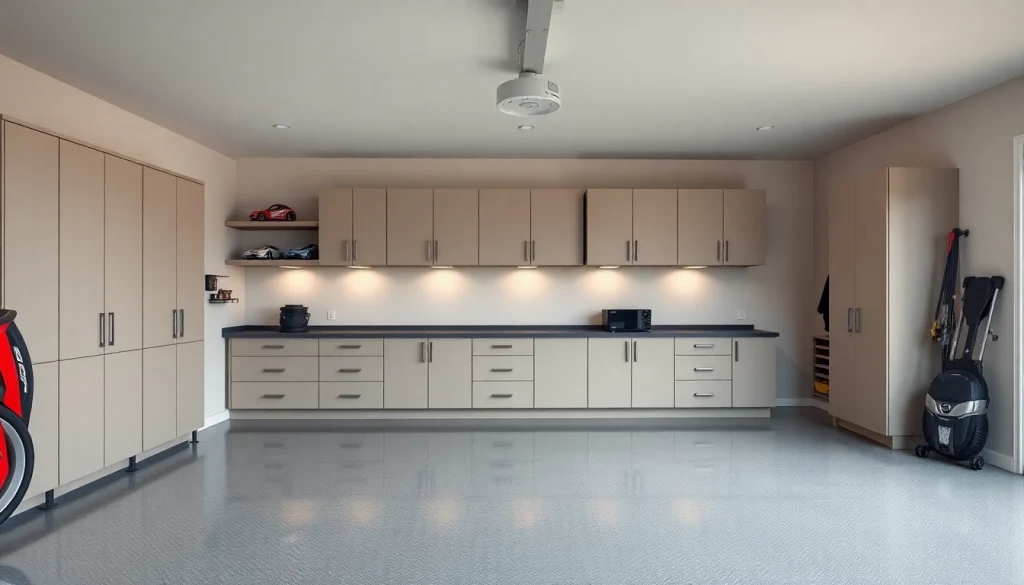
Understanding Custom Garages
What Are Custom Garages?
Custom garages are tailored garage spaces designed to meet the specific needs and preferences of homeowners. Unlike standard garages, which often come as part of a house’s original design, custom garages can be built from the ground up or remodeled to accommodate various purposes. These garages can serve not only as parking spaces for vehicles but also as workshops, storage areas, or even recreational spots. With the ability to choose dimensions, layout, materials, and features, homeowners can create a unique space that reflects their lifestyle.
Benefits of Custom Garages
The advantages of investing in custom garages are numerous:
- Tailored Functionality: Custom garages can be designed to fit specific needs, whether that’s additional storage for tools and equipment, a workspace for hobbies, or a dedicated area for workouts.
- Increased Property Value: A well-designed custom garage can enhance the overall value of a property, making it more attractive to potential buyers.
- Improved Organization: With custom cabinetry, shelves, and storage solutions, these garages can help keep tools, equipment, and vehicles organized, reducing clutter in your home.
- Enhanced Aesthetic Appeal: Custom garages allow homeowners to choose styles and finishes that match the architecture of their home, ensuring a cohesive look.
- Energy Efficiency: With modern materials and proper insulation, custom garages can be designed to be more energy-efficient, potentially saving homeowners money on energy bills.
Popular Custom Garage Features
When designing a custom garage, there are many features that homeowners may consider to enhance its functionality and style:
- Modular Storage Systems: Incorporating shelving, cabinets, and pegboards that can be adjusted based on the homeowner’s changing needs.
- Workbenches: A dedicated workstation for hobbies and repairs can greatly enhance a garage’s usability.
- Advanced Lighting: Installing LED lights or skylights can brighten up the space, making it more enjoyable to use.
- Integrated Technology: Smart garage systems can allow for remote access, automated lighting, and even security features that enhance convenience and safety.
- Flooring Options: From epoxy coatings to tiles, the flooring can be customized for durability, aesthetics, and ease of maintenance.
Designing Your Dream Custom Garage
Choosing the Right Layout
The layout of a custom garage is crucial as it determines how space will be utilized. Homeowners must consider how many vehicles will be parked, what storage solutions will be needed, and whether a workspace is desired. Common layouts include:
- Single Car Garage: Suitable for a single vehicle, this layout maximizes storage through vertical solutions.
- Double Car Garage: Providing more space for two vehicles and additional storage options for tools and equipment.
- Workshop Style: Featuring designated areas for workspaces with integrated tool storage, benches, and recreational equipment.
Materials and Finishes for Custom Garages
Choosing the right materials and finishes can significantly affect the durability and aesthetic of a garage. Here are some considerations:
- External Materials: Options like vinyl siding, wood, or brick can be utilized to match the home’s exterior.
- Roofing: Selecting shingles or metal roofing based on durability and aesthetic preferences.
- Insulation: Proper insulation reduces energy costs and maintains a comfortable climate in the garage.
- Finish Options: Floor coatings such as epoxy, tiles, or concrete finishes should be selected for durability and ease of cleaning.
Integrating Technology into Your Garage Design
Modern technology can add great value to a custom garage. Here are some technological integrations to consider:
- Smart Garage Door Openers: Allowing remote access and control from a smartphone.
- Security Systems: Integrating cameras and alarms to safeguard vehicles and valuables.
- Climate Control: Installing heaters or air conditioning to maintain a comfortable environment, especially if the space is used for hobbies.
- Automated Lighting: Motion sensor lights can enhance safety and energy efficiency.
Cost Considerations for Custom Garages
Average Pricing for Custom Garages
The cost of building a custom garage can vary significantly based on numerous factors. On average, prices range from $22,000 to $50,000, with many homeowners spending approximately $30,000. Key elements that influence the overall cost include size, materials, design details, and location.
Factors Influencing Custom Garage Costs
Several factors can impact the costs associated with building a custom garage:
- Size: Larger garages require more materials and labor, increasing costs.
- Design Complexity: Custom features, specialized designs, and high-end materials can drive up expenses.
- Location: Construction in urban areas may incur higher costs due to labor and material expenses.
- Permitting Fees: Local building regulations can dictate costs, varying by region.
- Foundation Requirements: The type of foundation necessary for your garage can also add to the total costs.
Saving on Your Custom Garage Project
Homeowners can minimize expenditures through careful planning:
- Prioritize Features: Choose essential features first and incorporate additional upgrades as your budget allows.
- Get Multiple Quotes: Collecting estimates from different contractors can help find a competitive price.
- Use Off-Peak Seasons: Scheduling construction during less busy times of the year may yield discounts.
- DIY Options: Consider tackling smaller projects yourself to save on labor costs.
Finding the Right Custom Garage Builder
Evaluating Potential Contractors
Choosing a reputable contractor is crucial for ensuring the quality and success of your custom garage project. Here are essential steps in evaluating potential builders:
- Check Credentials: Ensure that contractors are licensed, bonded, and insured.
- Review Portfolios: Look at past projects to gauge their experience and style.
- Seek Recommendations: Ask friends for referrals or read online reviews to find reliable builders in your area.
- Interview Candidates: Conduct interviews to assess professionalism and communication styles.
Questions to Ask Your Custom Garage Builder
Before finalizing a contractor, it’s important to ask the right questions, including:
- What is your experience with custom garage projects?
- Can you provide references? Are there projects I can visit?
- What timeline do you anticipate for my project?
- How do you handle unexpected issues during construction?
- What is your payment schedule?
Reading Reviews and Case Studies
Evaluating reviews and case studies allows homeowners to get a sense of a contractor’s reputation and success rates. Look for:
- Client Testimonials: Read what previous clients have to say about their experiences.
- Photos of Completed Projects: Analyze the quality of work through provided images.
- Contractor Response: Assess how contractors respond to negative feedback or challenges.
Maintaining Your Custom Garage
Routine Maintenance for Longevity
To ensure the longevity of a custom garage, routine maintenance is essential. Homeowners should consider:
- Regular Cleaning: Keeping the space free of debris and dirt.
- Inspecting for Damage: Regularly checking for leaks, wear, and tear.
- Maintenance of Doors: Lubricating and checking the functionality of garage doors.
- Cleaning the Floor: Employing appropriate methods to maintain flooring integrity, especially if using epoxy coatings.
Upgrading Your Custom Garage Over Time
As needs change, a garage can be upgraded to reflect new priorities. Homeowners may consider:
- Additional Storage: Installing new shelving or cabinets to accommodate more equipment.
- Renovating Workspace Areas: Updating tools and work surfaces to improve functionality.
- Technological Upgrades: Incorporating smarter features as technology evolves.
Organizational Tips for Your Garage Space
A well-organized garage can significantly enhance usability. Key tips include:
- Maximize Vertical Space: Use wall shelving and pegboards to utilize every inch.
- Zone Your Garage: Create distinct areas for tools, vehicles, and hobbies.
- Label Your Storage: Clearly label bins and boxes for easy identification.
- Rotate Seasonal Items: Regularly switch out seasonal gear to maintain optimal space usage.
